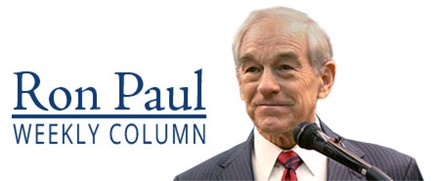Have You Noticed How Push-Back Against Powell-Fed’s Actions Is Getting Louder in the Mainstream Media, from NPR to CNBC?
by Wolf Richter, Wolf Street:
 Still a lot of fawning coverage, but big dissenters are now given prominent spots, and loaded questions are used to politely hammer Powell into telling obvious nonsense.
Still a lot of fawning coverage, but big dissenters are now given prominent spots, and loaded questions are used to politely hammer Powell into telling obvious nonsense.
This is an interesting turn of events, in a world of Fed-fawning mainstream media. In one version, the push-back takes the form of loaded questions about asset bubbles and wealth inequality caused by the Fed’s asset purchases.
Fed Chair Jerome Powell then answers, following what looks like a script because these loaded questions are now being thrown at him regularly. He admits that the Fed’s policies have increased asset prices, then says the Fed as a matter of policy doesn’t comment on asset prices, and hence cannot comment on asset bubbles, but then assiduously denies that this increased wealth of the asset holders, which he admits the Fed has engineered, widened the wealth inequality to the majority of Americans who hold no or nearly no assets, and who got shafted by the Fed. It’s like getting pushed on live TV into saying that, yes, indeed, two plus two equals three!
This happened many times, most notably during the July 29 FOMC press conference when a Bloomberg reporter pushed Powell on that (transcript of my podcast on the Fed’s role in wealth inequality); and during the interview with NPR which aired on September 4, when he was pushed on both, asset bubbles and wealth inequality.
In another version, the push-back in the mainstream media takes more accusatory forms expressed with exasperation and dotted with exclamation marks.
In early August, notable push-backers were former president of the New York Fed William Dudley and Bloomberg News which carried and promoted his editorial.
Dudley said that the Fed purchased these huge amounts of Treasury securities and mortgage-backed securities in March to bail out hedge funds, mortgage REITs, and others through the backdoor as the Treasury market went haywire. Hedge funds, he wrote, “were caught in an untenable trade of being long cash Treasuries and short Treasury futures,” and those highly leveraged huge trades began to blow up (transcript of my podcast).
And this, Dudley wrote in the editorial, “brings us back to moral-hazard problem: investors win during good times (they can assume more risk and earn higher returns) while the Fed and the U.S. Treasury (ultimately taxpayers) assume part of the downside risks when there is trouble in financial markets. This is likely to encourage even greater risk-taking down the road, making it more likely that investors and markets will need to be rescued in the future,” he said, adding, “This doesn’t seem to be a good road to stay on.”
And this morning it was CNBC, which interviewed hedge-fund founder-manager Stanley Druckenmiller on Squawk Box, which has a large audience, and the video spread across the internet, and most financial publications covered it, multiplying the reach of the message. And by airing the concerns of a famous investor, like Druckenmiller, on the show, CNBC spread the word far and wide.
Druckenmmiller didn’t get into wealth inequality, but he got into asset bubbles and the “massive, massive raging mania in financial assets,” as he said, that the Fed has caused, the “de facto MMT,” and how this was “dangerous.” Here is my transcript of portions of his take:
“I think the merging of the Fed and the Treasury, which is effectively what’s happening during Covid, sets a precedent that we’ve never seen since the Fed got their independence. And it’s obviously creating a massive, massive raging mania in financial assets, and as you just pointed out, Joe, it has not spilled over to Main Street.”
“I would just say that I hear a lot of people on the air lauding Jay Powell, saying he saved the world. And I do think that he did a great job in March. But I think the follow up has been excessive.”
“And I just want all you guys cheering him on to remember the Maestro in 2005, and how that worked out. Look, everybody loves a party,” he said, “but inevitably, after a big party, there’s a hangover, and right now we are in an absolutely raging mania.” He then goes on to explain just how crazy markets have gotten.
“And what the Fed has done, in my opinion, if you listen to the Jackson Hole speech on the framework, it’s quite amazing. It sounded like an apology because inflation has been 1.6% instead of 2% the last 10 years. Well, their mandate is price stability, where I think 1.6% is. They hit a home run. But they actually sound like they’ve been too tight the last 10 years.”
“And look what they’re risking in terms of financial stability to hit that 2% mark. My own sort of central case is that for the first time in a long time, I am actually worried about inflation.”



